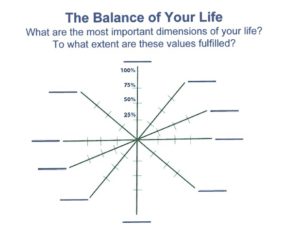A stimulating talk on a subject of high interest: Happiness
Jeff Goodman reflected on a national survey showing that about 30% of the U.S. population reports being Very Happy! The remainder are a mix between Pretty Happy and Not Too Happy. The idea of achieving “Happiness” and its causes is the subject of what is now an emerging area of study called Positive Psychology vs Traditional Psychology.
Psychologists research indicates several underlying factors that are closely related to happiness:
- Genetic factors 50%
- Circumstantial 10%
- Relational, aligning activities w/ values and managing attitudes, age, education & IQ 40%
Mr. Goodman conducted a show of hands impromptu survey of the Arcadia Rotarians resulting in most of them reporting to be Very Happy. Three factors that do correlate to a high degree of happiness are: 1. Married, 2. Over 60, & 3. Regularly attend Church. Other research has shown that while your choice of career and the people you work with can lend to happiness, your income after a certain point ($75K Nationally & $150K in So Cal) does not correlate to a higher degree of happiness.
Mr. Goodman noted that aligning one’s activities with their values may be the most important aspect of achieving happiness. For example: if you value good health, then exercise and healthy eating should be regular part of your activities. If you value friends, then taking time to make friends and be with them is important, same with other values including: religion, recreation, children, career, financial health, Integrity… One Rotarian noted that friends like Chivas Regal and Johnnie Walker are important to his happiness. (his name will be kept confidential, as he is often busy washing cars in Arcadia)
A life well lived requires some introspection and self evaluation and our speaker gave us a graphical tool to help. To use the tool you list your values around the chart and rank your level of satisfaction with each area. Then you can easily see discrepancies between things you value and your satisfaction in that area. This gives you the opportunity to establish goals in areas you value, family, career etc.


The question was posed as to how the U.S. stacks up with respect to overall happiness with other countries? Seems that some of the Nordic countries have a bit better balance of values than we do leading to greater happiness. Great topic, thank you Mr. Goodman, a LA 5 Rotarian.

 Let’s Recap! 5/10/24
Let’s Recap! 5/10/24 